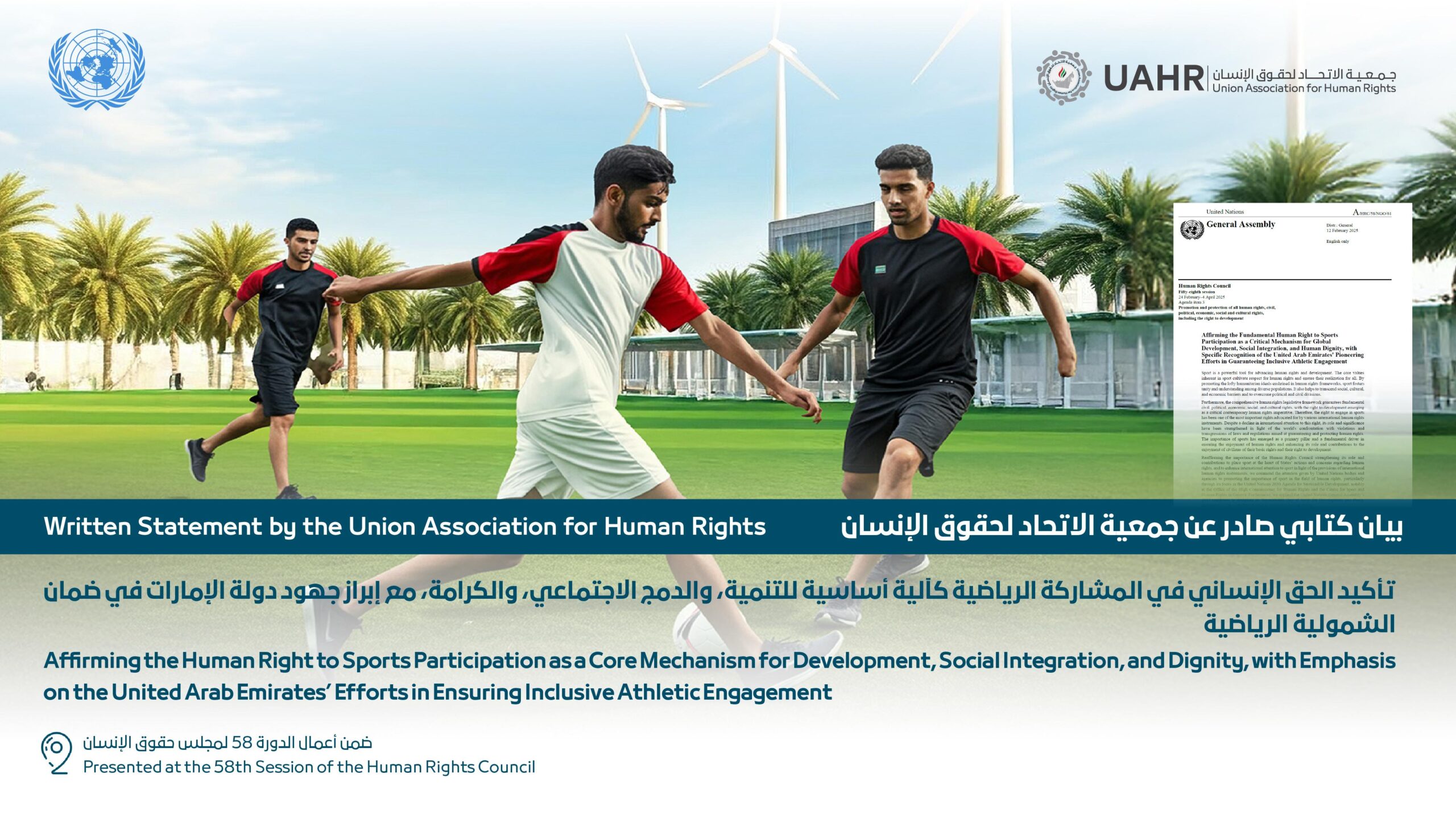08
Dec
2024
2025 | 58th session of the Human Rights | Human Rights Council | Written Statements
Sport as a Fundamental Human Right: Joint Statement to the Human Rights Council Commending the UAE’s Model and Calling for International Mechanisms to Promote Inclusivity and Development through Sport

About the Statement
Issued by the Union Association for Human Rights, in cooperation with a non-governmental organization holding special consultative status with the Economic and Social Council, this written statement was submitted to the United Nations Human Rights Council at its 58th session (24 February – 4 April 2025). The statement focuses on affirming the fundamental human right to participate in sport as a vital mechanism for achieving comprehensive development, promoting social inclusion, and safeguarding human dignity.
Contents of the Statement:
First: Background and general content
- The statement is based on affirming the human right to participate in sport as an integral part of the human rights system and a strategic means for achieving development, social inclusion, and preserving human dignity.
- It places sport at the core of the international human rights agenda, especially in light of the outcomes of the 2030 Sustainable Development Agenda and the UN General Assembly resolution (2013) designating the International Day of Sport for Development and Peace.
Second: Legal and normative foundations
- The statement links sport to the principles of:
- The right to development.
- The right to cultural and social participation.
- Social justice and community inclusion.
- It highlights the international shortfall in recognizing this right, despite its being essential in overcoming political divisions and cultural or economic discrimination.
Third: Commendation of the United Arab Emirates
The statement devotes clear space to commending the efforts of the United Arab Emirates (UAE) as a regional pioneering model for integrating sport within national and human rights policies, through:
- The National Sports Strategy 2031, which enshrines sport as a driver of community development and justice.
- Federal Law No. 4 of 2023 on Sport, which guarantees the right to practice sport, including for people of determination, without barriers.
- Institutional entities:
- The General Authority of Sports.
- Special Olympics UAE.
- Emirates Association of the Deaf.
- Including sports quality of life as part of the fourth pillar of the UAE Centennial 2071 Agenda, reflecting a far-sighted strategic vision.
Fourth: Recommendations of the statement
The statement calls on the Human Rights Council to:
- Integrate sport into national plans as a human right and tool for comprehensive development.
- Allocate financial resources for developing sports infrastructure and supporting international events.
- Raise societal rights awareness about the importance of sport as a right, not a luxury.
- Enhance international cooperation and exchange of regional and global experiences in the sports field.
- Align sports governance with UN human rights principles.
- Urge international sports federations to fulfill their responsibilities in respecting and protecting human rights.
Importance and human rights context:
- This statement represents an important shift in expanding the concept of human rights to include sports rights as fundamental, not complementary or recreational rights.
- It reinforces the link between sport, human dignity, and sustainable development.
- It highlights the UAE as a positive case study balancing legislation, policies, and institutions in achieving sports inclusiveness.

